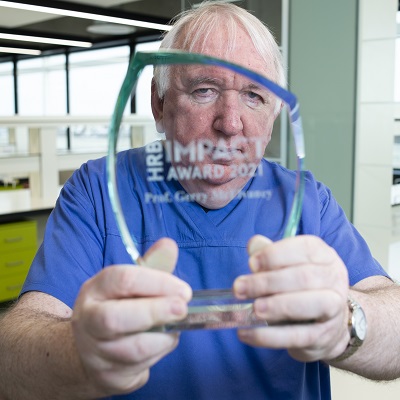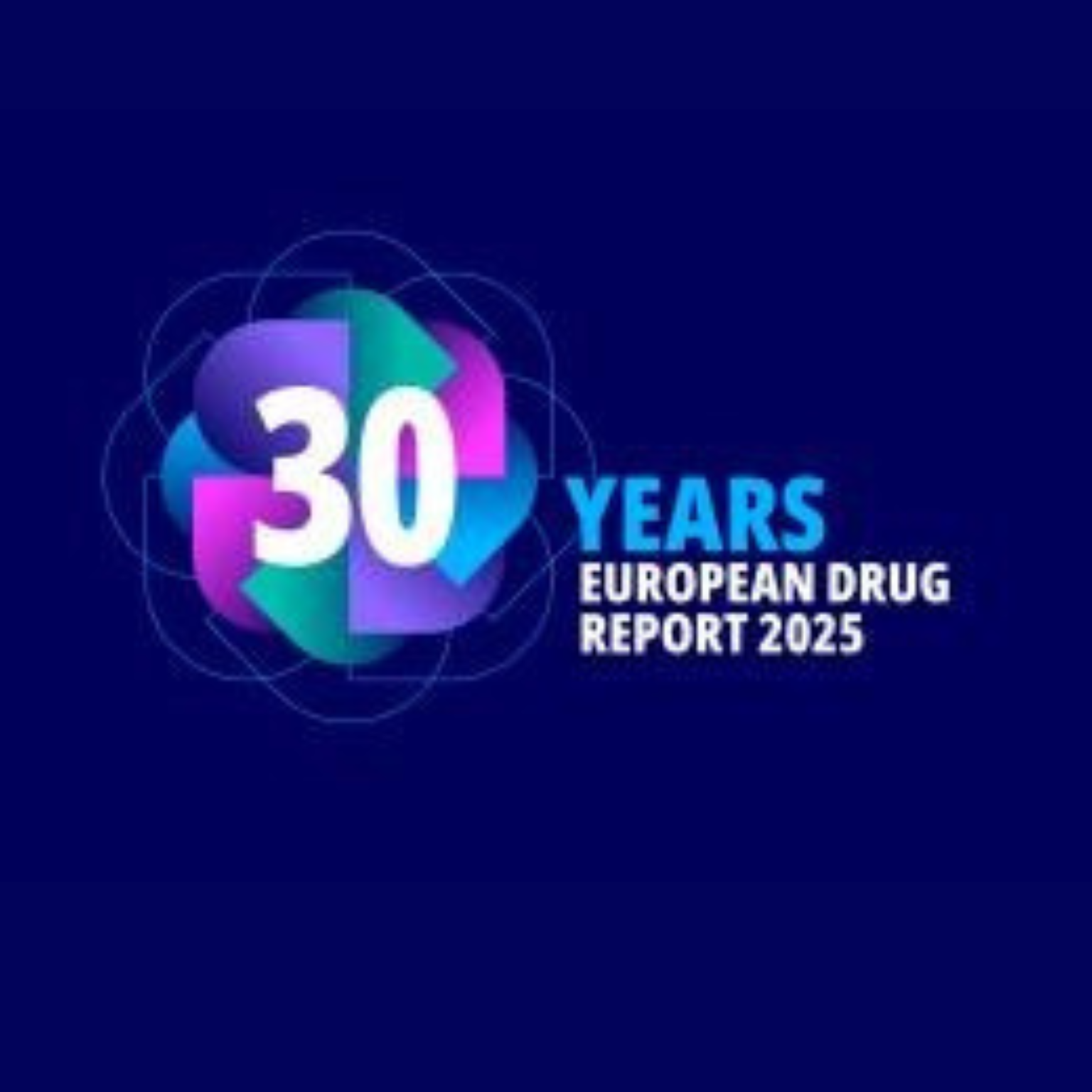HRB announces winner of Impact Award 2021
The Health Research Board (HRB) has announced Gerry McElvaney, Professor of Medicine at RCSI University of Medicine and Health Sciences, as the winner of the HRB Impact Award 2021.
5 min read - 12 Feb 2021

The award recognises the lasting impact Prof McElvaney has had on people’s health and patient care by applying his respiratory medicine research in practice. His work has informed local, national and international guidelines including European and World Health Organisation developments.
Throughout his career Prof McElvaney has consistently demonstrated the benefits that can be achieved by proactively integrating research into policy and practice. His work focused on a specific genetic disorder called alpha 1 anti-trypsin deficiency (AATD) that leads to an increased risk of developing lung complications such as chronic obstructive pulmonary disease (COPD).
Presenting the award, Dr Mairéad O’Driscoll, Chief Executive at the Health Research Board said:
‘Prof McElvaney has been applying research evidence to affect positive change in health, care and practice both here in Ireland and on a global scale. This is what the HRB Impact Award is all about. As well as leading advancements in detection, diagnosis and treatment in his own specialty, much of his work and advocacy to discourage smoking is of enormous benefit to the wider public too.
It is really encouraging to see Prof McElvaney actively supporting opportunities for public and patient involvement in research. His efforts to understand how this illness affects people’s lives has helped to increase our understanding about respiratory conditions and as a result, led to vast improvements in the standards of care and health outcomes for patients.’
COPD accounts for 5% of all deaths globally and is the second most common cause of lung-related deaths in Ireland. Prof McElvaney’s research group have developed diagnostic and screening tools for alpha-1 anti-trypsin deficiency which are now replicated globally. He has also played a major role in the development of the only specific treatment currently available for COPD arising from this disorder, called AAT augmentation therapy.
Accepting the HRB Impact Award, Prof McElvaney said:
‘It is wonderful to see the outcomes of research materialise into real benefits for patients and the public and how the efforts to translate these findings have visibly improved people’s lives. People are at the centre of this work and we host annual patient conferences where new research and treatment options are discussed together. It is so important that the lived experiences of patients are heard, for example, patient-reported outcomes have been critical in our successful submission to the HSE for the continued payment for augmentation therapy.
I am enormously grateful to my research team and colleagues who have been key contributors to these advancements to date and to the Health Research Board for their continued support over many years. While we have made significant progress in our understanding of these illnesses there are many questions remaining. Bolstered by this award we will continue to investigate the risks of developing COPD and whether lung disease may differ between different genetic types of AATD. By pursuing this research, we hope to further inform management and treatment strategies so that better patient outcomes continue to arise from this work.’
Professor Fergal O’Brien, RCSI’s Director of Research and Innovation, who nominated his colleague for the award said:
‘Throughout his career Prof McElvaney has worked continuously to ensure maximum impact of his research. His findings enabled the establishment of the National Targeted Detection programme, the first of its kind in the world, to allow the early detection of those living with alpha-1 anti-trypsin deficiency. To date over 20,000 people have been tested through this programme.
He also set up the Alpha-1 Foundation of Ireland (A1FI), to provide a patient forum and to promote awareness of AATD. One of the organisation’s first acts was to work with the Minister for Health in introducing the workplace smoking ban as people with this deficiency are very susceptible to second-hand smoke. Prof McElvaney continues to raise awareness around smoking cessation and dangers of vaping through school outreach programmes. He has also progressed communications in this area, most recently establishing a helpline for patients with concerns during the Covid-19 pandemic.’
Professor Gerry McElvaney was selected as the winner of the HRB Impact Award following a nomination process and subsequent assessment of candidates by an international panel of health experts.
The announcement will take place at this year’s HRB Grant Holders conference which brings together the HRB-funded research community to engage in discussion around HRB strategy and the challenges relating to health research during the pandemic.
ENDS
The HRB Impact Award acceptance presentation and all other talks from the HRB Grant Holders conference 2021 will be available on the HRB YouTube page early next week.
Read more about the HRB impact award and nomination process
Read about members of the HRB Impact Award international review panel
For more information, contact Gillian Markey, Communications Manager, Health Research Board:
e gmarkey@hrb.ie
m 087 2288514
About the Health Research Board
The HRB is the lead funding agency for health research in Ireland. It oversees a €50 million investment in health research activity each year and manages a funding portfolio of more than €200 million. The organisation produces evidence reviews for the Department of Health to inform health policy making and manages four national health information systems as well as the HRB National Drug Library.
We want the research that we fund and the evidence we generate to:
- deliver real benefits for people’s health
- transform the way healthcare is delivered
- provide information and evidence that informs decisions about health care
- advance health research and data infrastructure
- generate economic returns through healthcare innovation and economic development
5 min read - 12 Feb 2021



